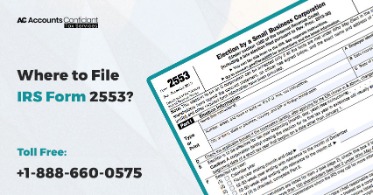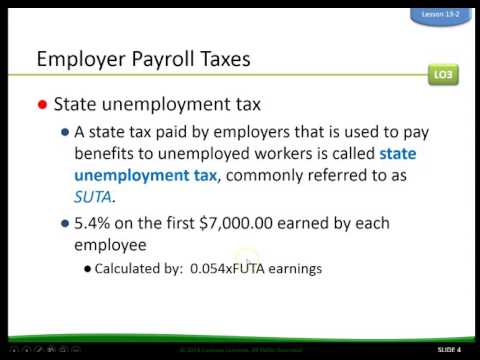
Traditional standard costing must comply with generally accepted accounting principles (GAAP US) and actually aligns itself more with answering financial accounting requirements rather than providing solutions for management accountants. Traditional approaches limit themselves by defining cost behavior only in terms of production or sales volume. The main difference between managerial accounting and financial accounting is the parties for which they provide financial information. It provides internal managers or employees with useful insights that assist the organization’s management in planning strategic operations. It helps them set realistic goals, and encourages an efficient directing of company resources.Financial accounting is more concerned with providing insights to external parties such as investors and financial bodies.
- Costs are broken down into four categories; fixed cost, variable cost, direct cost, and indirect cost.
- A financial analyst’s main duty is to examine data to determine outcomes and opportunities for business investments and decisions.
- In order to serve their customers better and more efficiently, the company is trying to decide whether or not to expand its services and offer credit counseling, credit monitoring, credit rebuilding, and identity protection services.
- The process of creating organization goals by identifying, measuring, analyzing, interpreting and communicating information to managers is call management or managerial accounting.
Inventory turnover is a financial ratio that shows the number of times a company has sold and replaced inventory over a given period. Inventory turnover analysis involves the process of studying this ratio and coming up with enough information for better business administration. Financial accounting is only aimed at keeping historical data about all the financial transactions a company has engaged in.
Inventory Turnover Analysis
In capital budgeting analysis, managerial accountants calculate the net present value (NPV) and the internal rate of return (IRR) to help managers to decide on new capital budgeting decisions. Managerial accounting, also known as management accounting, is a branch of accounting that
focuses on providing financial information and analysis to help management publication 536 , net operating losses nols for individuals, estates, and trusts make informed
decisions within an organization. Managerial accounting refers to the process of collecting and analyzing a business’s financial information as well as contextual data and preparing reports for internal management. The purpose of managerial accounting reports is to support and guide planning and operational management activities.
Managerial Accounting 202 – A Series of ACG 2071 Workshops – St. Petersburg College
Managerial Accounting 202 – A Series of ACG 2071 Workshops.
Posted: Thu, 24 Aug 2023 04:05:03 GMT [source]
Since managerial accounting is not governed by GAAP or other constraints, it is important for the creator of the reports to disclose all assumptions used to make the report. Since the reports are used internally, and not typically released to the general public, the presentation of any assumptions does not have to follow any industry-wide guidelines. Each organization is free to structure its reports in the format that organizes its information in the best way for it. Managerial accountants perform cash flow analysis in order to determine the cash impact of business decisions.
Lean accounting (accounting for lean enterprise)
You are working as the accountant in the special projects and budgets area of Sturm, Ruger & Company, a law firm that currently specializes in bankruptcy law. In order to serve their customers better and more efficiently, the company is trying to decide whether or not to expand its services and offer credit counseling, credit monitoring, credit rebuilding, and identity protection services. He would like the projections in three days’ time so that he can present the results to the board at the annual meeting. All variable expenses are traced to products in marginal costing (also known as direct or variable costing), and fixed manufacturing and non-manufacturing overheads are treated as a period cost. All manufacturing costs are traced to products in absorption costing, while non-manufacturing overheads are treated as a period cost.
Management accountants use performance reports to note variances between actual results from budgets. Managerial accountants analyze and relay information related to capital expenditure decisions. This includes the use of standard capital budgeting metrics, such as net present value and internal rate of return, to assist decision-makers on whether to embark on capital-intensive projects or purchases. Managerial accounting involves examining proposals, deciding if the products or services are needed, and finding the appropriate way to finance the purchase.
What Is a Management Accounting System?
This includes increased job opportunities, higher annual earnings, and distinction within your industry. In a supervisory position, controllers oversee all aspects of the financial health of an organization, organizing reports, analyzing financial data, and creating strategic plans and goals. A performance report provides information about the outcome of an activity or the work of an individual. It compares the initial plan set out by a company with the current state of affairs, determining if business goals are being fulfilled or not.
- Learners are advised to conduct additional research to ensure that courses and other credentials pursued meet their personal, professional, and financial goals.
- The proper management of account receivables is an important form of managerial accounting.
- A company may also have research and training materials available for use in a corporate owned library.
- Traditional standard costing must comply with generally accepted accounting principles (GAAP US) and actually aligns itself more with answering financial accounting requirements rather than providing solutions for management accountants.
Nonetheless, information from managerial accounting is used by the internal administrators of a company that make the decisions. These internal administrators include the general management of a company and the owner of a business to make better financial and operational decisions. Bookkeeping data is used to calculate key performance indicators (KPIs) and metrics, such as
gross profit margin, net profit margin, and return on investment.
CONSTRAINT ANALYSIS
Managerial accounting involves the compiling, analyzing, and interpretation of financial records for managers. Trend analysis is also referred to as horizontal analysis and denotes the process of analyzing a business’s financial statements over a given time period to map out trends and patterns of revenue and cost information. The process involves reviewing proposals, deciding if there is a demand for products or services, and finding the appropriate way to pay for the purchase. It also outlines payback periods, so management is able to anticipate future costs and benefits.

Constraint analysis helps companies run more smoothly and efficiently by identifying errors in the production of goods and services. Managerial accountants may use data like cash flow, revenue, and profits to identify problems in the flow and cost of production, which affects profitability. A financial analyst’s main duty is to examine data to determine outcomes and opportunities for business investments and decisions.
Managerial Accounting FAQ
Managerial accounting is a very important accounting type for businesses in highly competitive business environments. It helps with operational data to quickly and easily make more accurate business decisions. However, it can be difficult for internal managers in a company to interpret these accounting records compiled by accountants and bookkeepers because they are mostly aimed at external parties.
Managerial accounting uses easy-to-understand techniques such as standard costing, marginal costing, project appraisal, and control accounting. This type of analysis helps management to evaluate how effective they were at carrying out the plans and meeting the goals of the corporation. You will see many examples of reports and analyses that can be used as tools to help management make decisions. Investopedia is considered to be the largest Internet financial education resource in the world.
When a managerial accountant performs cash flow analysis, he will consider the cash inflow or outflow generated as a result of a specific business decision. For example, if a department manager is considering purchasing a company vehicle, he may have the option to either buy the vehicle outright or get a loan. A managerial accountant may run different scenarios by the department manager depicting the cash outlay required to purchase outright upfront versus the cash outlay over time with a loan at various interest rates.

Comentarios recientes